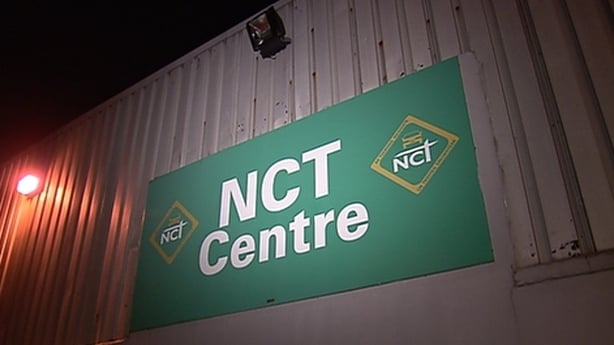The National Car Testing Service said 85 car testing lifts identified with defects will be repaired and back in service between now and the end of April.
The repair programme will start on Monday 2nd March, with the repair time for each lift expected to be around two days.
While the replacement programme for repaired lifts is due to begin in June.
Use of the lifts was temporarily suspended on 29 January, two days after a similar problem emerged at MOT centres in Northern Ireland.
Due to the ongoing problem, NCTs are being carried out in two parts.
This means anyone going for their test cannot get a completed NCT certificate during the first test, as the underbody inspection cannot be carried out.
They will have to go back at a later date to get this done, once the lifts are back in service.
However, provisions have been made so that certs being provided show that the test is 'incomplete' rather than a 'fail'.
The NCTS has now completed its survey of all 106 car testing lifts throughout its network of 47 centres.
These 85 lifts that have been identified to have a problem, have a similar defect on the scissor lift arm that requires a repair and replacement of a part.
Meanwhile, 13 new lifts have been delivered and have replaced defective lifts this week.
Last week, eight lifts were given a green light to continue testing in Cork (Little Island, Limerick, Northpoint), Swords and Fonthill in Dublin, Galway, Letterkenny, Waterford and Killarney.
These are separate to the six centres previously cleared for use in Deansgrange, Ballinasloe, Athlone, Skibbereen, Ballina and Enniscorthy.

Lifts at these locations are being used primarily for drivers who are due to undergo a Driving Test and NCT Taxi roadworthiness test.
It is anticipated that at this stage, once the lift repairs are completed, full testing will be available on 100% of test lanes in centres by the end of April.
NCTS General Manager Grant Henderson said: "Our aim is to ensure that we have lift availability in most centres as soon as possible.
"We expect that 50% of test lanes will be operating by the end of March and 100% by the end of April.
"The NCTS can also confirm that the replacement programme for all repaired lifts will commence in June 2020."
We need your consent to load this rte-player contentWe use rte-player to manage extra content that can set cookies on your device and collect data about your activity. Please review their details and accept them to load the content.Manage Preferences
All faulty MOT centre lifts to be replaced in £1.8m move
In Northern Ireland, the Infrastructure Minister Nichola Mallon today announced 52 new car testing lifts have been ordered from service provider MAHA.
They will be installed at the 15 MOT test centres between April and mid July
The order is costing £1.8m and is being funded by existing Driver and Vehicle Agency reserves.
There have been 52,000 tests cancelled since 27 January, meaning around 1,400 tests were cancelled each day.
During that period, 58,000 tests have been carried out, with priority testing for taxis, car dealerships and four-year-old cars that are getting a test for the first time.
Other drivers have been issued a four-month temporary exemption certificate.
NI Infrastrucutre Minister @NicholaMallon has announced 52 new car testing lifts will be installed at MOT centres between April & mid July at a cost of £1.8m funded by DVA reserves. 52,000 tests have been cancelled since 27th Jan pic.twitter.com/VM8Q8iU4kU
— Gail Conway (@gailconwaymedia) February 27, 2020
Ms Mallon ordered two independent reviews after all car testing was cancelled.
One of the reports will look at requesting expert advice on the condition of the existing lifts, while the other will focus on the events that led to this situation and how it can be avoided in the future.
She said: "I have now been given the first report from the independent engineering expert's assessment on the condition of the existing lifts.
"It has recommended that all lifts with faults should be replaced, not repaired.
"The second audit investigation report has not been completed, however it has highlighted that there are no issues with the purchasing of this equipment from the existing supplier."
Ms Mallon also said a stricter maintenance regime is needed to ensure this does not happen again.







